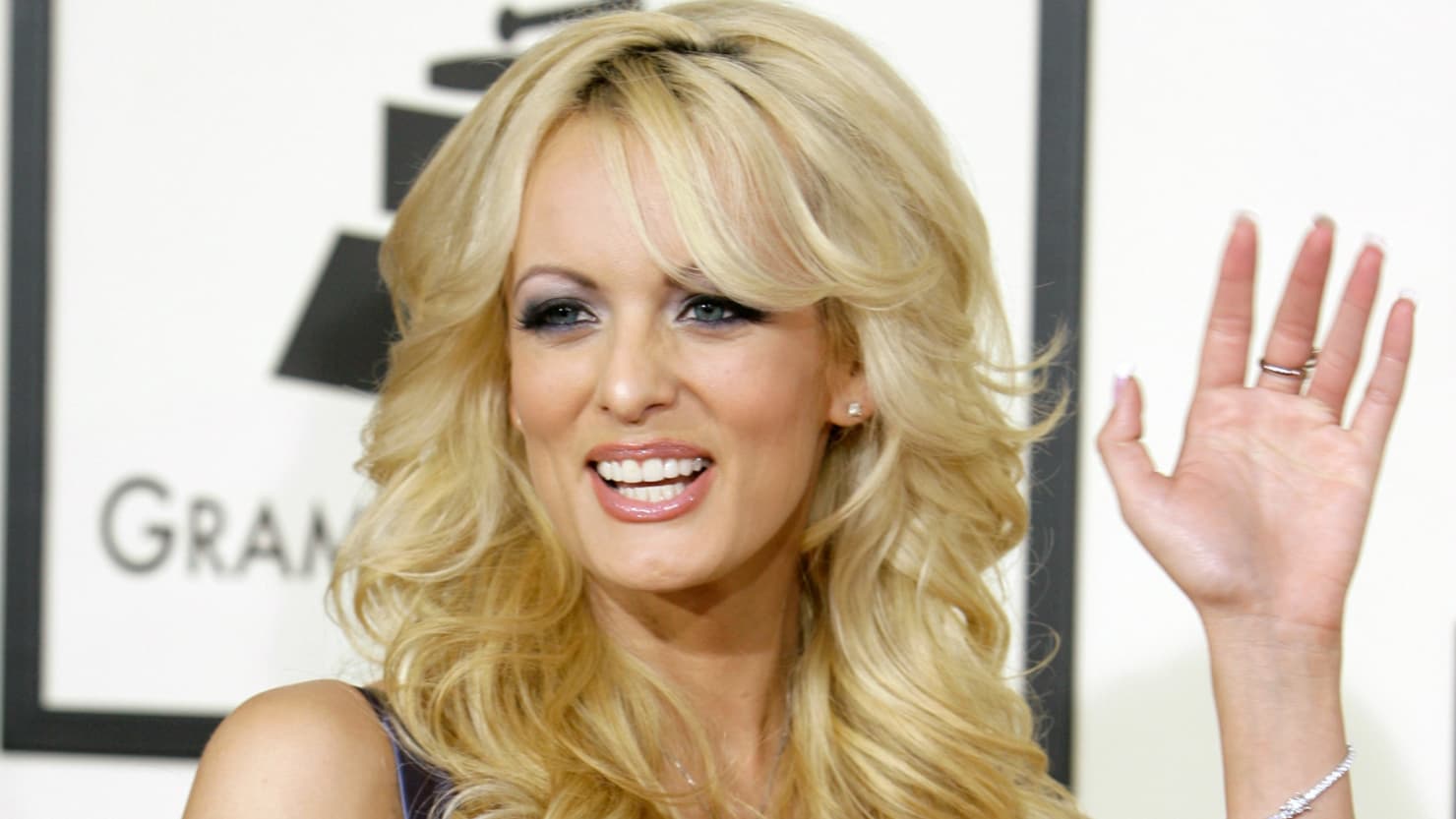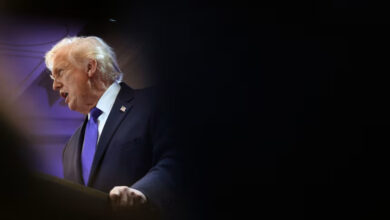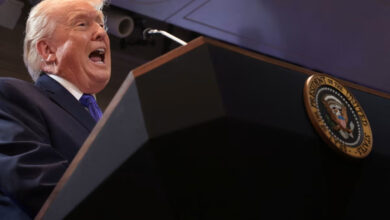
President Donald Trump said on Thursday his personal lawyer was paid back through a monthly retainer, not campaign funds, for the $130,000 given to adult-film star Stormy Daniels to stop “false and extortionist accusations” she made about a sexual encounter with him.
Trump, who in April told reporters he did not know about the payment to Daniels made by his lawyer Michael Cohen the month before the 2016 election or the source of the money, said on Twitter the funds were part of a “private agreement” that involved money that had “nothing to do with the campaign.”
In his fullest account to date regarding the payment to Daniels, whose real name is Stephanie Clifford, Trump acknowledged the non-disclosure agreement with her to secure her silence about what she has called a one-night sexual encounter with Trump in 2006. Trump also forcefully denied the affair.
“The agreement was used to stop the false and extortionist accusations made by her about an affair … despite already having signed a detailed letter admitting that there was no affair,” Trump wrote, adding that Daniels and her lawyer had violated it.
“Money from the campaign, or campaign contributions, played no roll (sic) in this transaction,” Trump added.
The claim of repayment is significant because a payment by Cohen could be seen as an illegal campaign contribution. Trump as candidate would have been permitted to make unlimited personal contributions to his own campaign.
Cohen is currently facing a federal criminal investigation in New York in part over the payment to Daniels, with the FBI seizing material from his office and home. The investigation is an offshoot of the ongoing probe by Special Counsel Robert Mueller into potential collusion between Trump’s campaign and Russia and whether Trump has unlawfully sought to obstruct the probe.
Trump on Thursday said Cohen “received a monthly retainer” from which he entered into the “non-disclosure agreement.” Trump described such agreements as “very common among celebrities and people of wealth.”
Trump’s tweets came the morning after former New York City Mayor Rudy Giuliani, who joined Trump’s legal team last month, said Trump had repaid Cohen the hush money given to Daniels.
Even if Trump repaid Cohen, the payment to Daniels could still be found to be an undisclosed campaign loan in violation of federal election laws, law professor Kathleen Clark of Washington University in St. Louis said.
Clark said Giuliani’s statement strongly suggests the payment could have been campaign-related. Omitting the loan from disclosure forms is also arguably a violation of statutes against making false statements to the government, she said.
‘HE DID HIS JOB’
Giuliani pushed back on that idea on Thursday on the Fox News program “Fox & Friends,” saying it was a personal rather than campaign matter to protect the president’s family and that Trump did not know the details of the arrangement until about 10 days ago. But Giuliani also appeared to make the opposing argument.
“Imagine if that came out on October 15, 2016, in the middle of the last debate with Hillary Clinton … Cohen made it go away. He did his job,” said Giuliani, referring to Trump’s election opponent.
Daniels has filed two lawsuits against Trump, one to get out of a non-disclosure agreement she had signed in October 2016 ahead of the November presidential election in exchange for the $130,000, and another for defamation.
The lawsuit over the non-disclosure agreement was put on hold last week by a judge in Los Angeles, who said the potential overlap between the case and the criminal investigation in New York could violate Cohen’s constitutional right against self-incrimination.
Asked about the president’s tweets, Daniels’ lawyer Michael Avenatti told MSNBC Trump opened himself up to another possible defamation suit.
“Our case just got exponentially better,” Avenatti said. “This is not about sex … this is about a cover up.”
Daniels offered her account of her relationship with Trump in an interview on the CBS News program “60 Minutes” broadcast in March. Avenatti has said that appearance did not violate the agreement because Trump never signed the contract.
Separately, Giuliani told the Washington Post that he understood that Cohen’s reimbursement from Trump was made in a series of transactions after the 2016 election that were completed in 2017 – during his presidency – but could have continued into this year.




